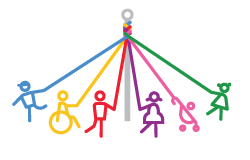Preparing for adulthood
From at least year 9 (aged 13-14) there should be consideration of PfA in any SEND planning and if your child has an EHCP there should be a focus on this in their Year 9 review.
Useful resources
Leeds Sendiass are not responsible for the content of sites or services offered by third parties.
- Preparing for adulthood (Pfa) - website.
- KIDS - preparing for adulthood transitions guide.
- IPSEA - annual reviews in year 9 and beyond advice.
- Council for Disabled Children (CDC) - person centred planning
- Leed local offer - preparing for adulthood.pages
- Leed local offer - Post 16 options.pages
- Leeds for Learning- PFA Family Resource page.
- CEBRA - transition factsheet.
- SNOOP - Young Adult support.
- Start Careers and education pathways in Leeds
You can find more links on our Useful SEND resource page.
